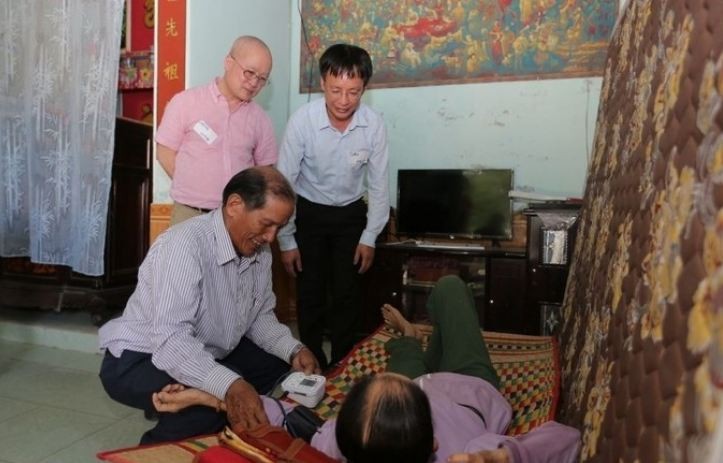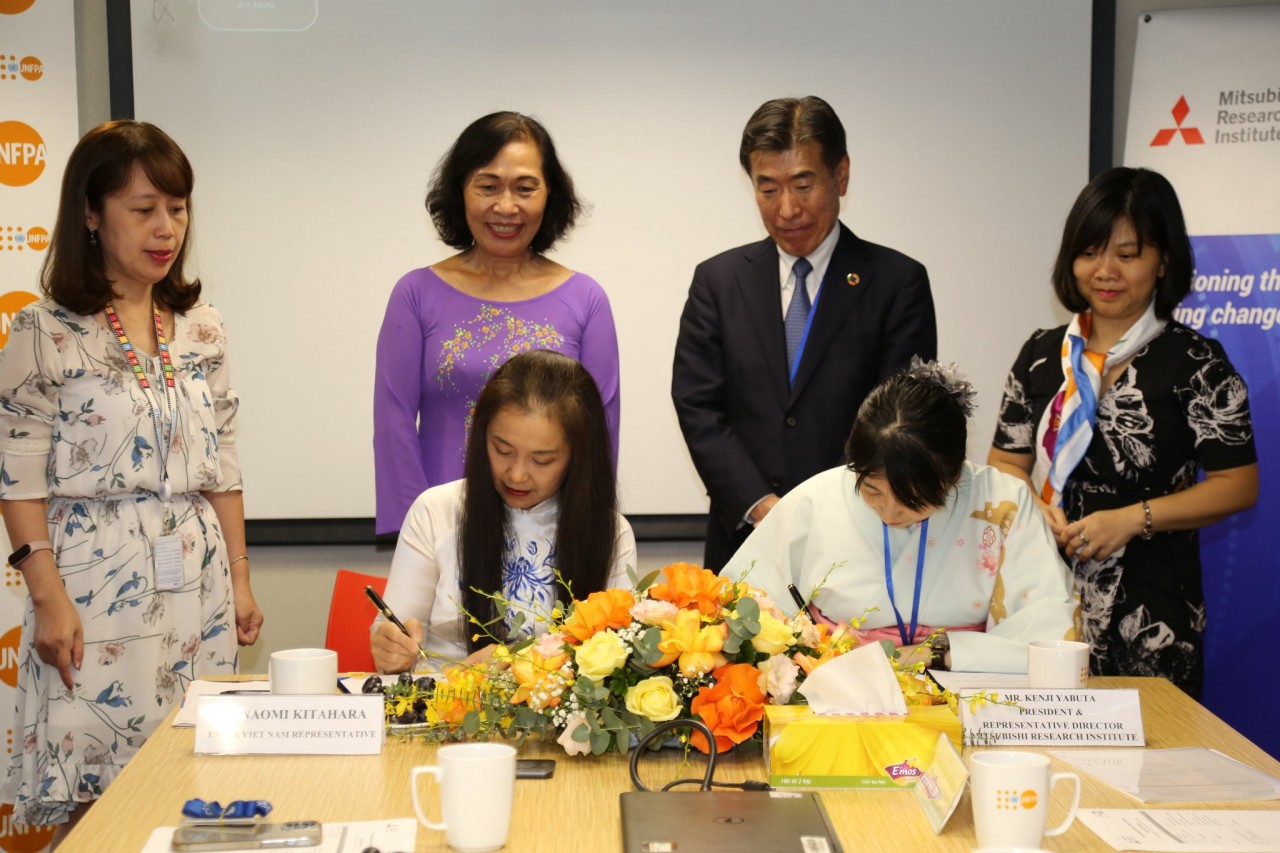 |
| Home-caregivers of older persons. Photo: UNFPA in Vietnam |
A new partnership between the United Nations Population Fund (UNFPA) in Vietnam and the Mitsubishi Research Institute (MRI) was signed on August 25 in Hanoi to address the aging of population concerns in Vietnam.
In 2021, older persons (aged 60 and above) accounted for 12.8% of the total population (12.6 million people) in Vietnam, and the country will soon transition from aging to an aged country by 2036.
The increase in both the absolute number and percentage of older persons in the population requires for more attention on social protection for older persons including elderly care, especially when traditional support from a family is decreasing due to various reasons including low fertility, migration, and modernization.
About 11.7% of the older population (or 1.47 million older persons) had at least one functional disability (vision; hearing; mobility; cognition; and/or communication). 6.32% of the older population (or about 796,000 older persons) found it very difficult to perform or could not perform at least one of the following of activities of daily living: eating, putting on or taking off clothes, bathing or washing, getting up when lying down and getting to and/or using the toilet.
About 80% of older persons, who needed help or assistance with activities of daily life, received care from others, primarily family members (spouse, children, and grandchildren) who were not necessarily trained or supported to provide care for older persons.
The Mitsubishi Research Institute, Inc. (MRI) is a Japanese think tank, which was founded in 1970. MRI’s mission is to resolve societal issues both in Japan and throughout the world through research, consulting, and ICT capabilities.
Both the UNFPA and MRI Representatives committed to working closely together in joining hands with the Government of Vietnam and the international community to effectively address population ageing and other emerging population issues in Vietnam.
 |
| At the signing ceremony. Photo: UNFPA in Vietnam |
Addressing the signing ceremony, MRI President Kenji Yabuta, stressed that in Japan, the population has been ageing rapidly since the 1980’s, and the proportion of the elderly out of the total population is now the highest in the world at over 28%. Over the past 30 years, MRI has undertaken the trial and error of trying to create a society where everyone can live comfortably through measures to address the ageing population in Japan, such as the introduction of a long-term care insurance system and support for private long-term care providers.
“We are very pleased to sign the MOU with UNFPA in Vietnam and feel that UNFPA is truly acting as a bridge between Japan and Vietnam”.
According to Naomi Kitahara, UNFPA Representative in Vietnam, threre’re a lot of opportunities for innovation and thought leadership in this alliance with the MRI, as they’ll be working closely together to promote the rights and dignity of older people through improving health and social care services and creating the enabling environment for the elderly.
“Following the signing event, the plan is for both sides – UNFPA and MRI to explore the best models for Vietnam in providing for older persons, and prepare young generations for the future in which all ages are celebrated and no one is left behind,” said Kitahara.
This new partnership will focus on the issues of ageing and other population matters, such as sexual and reproductive health and rights, health care for young people, and gender equality.
They will conduct joint research and communications; consult and support project execution; and organize events for public sharing of research findings; develop personnel training and exchange programs.
At the same time, promoting public-private partnerships in the light of population aging and emerging population trends; and expanding a network of Vietnamese and Japanese entities to promote the development of care and support for the elderly.








